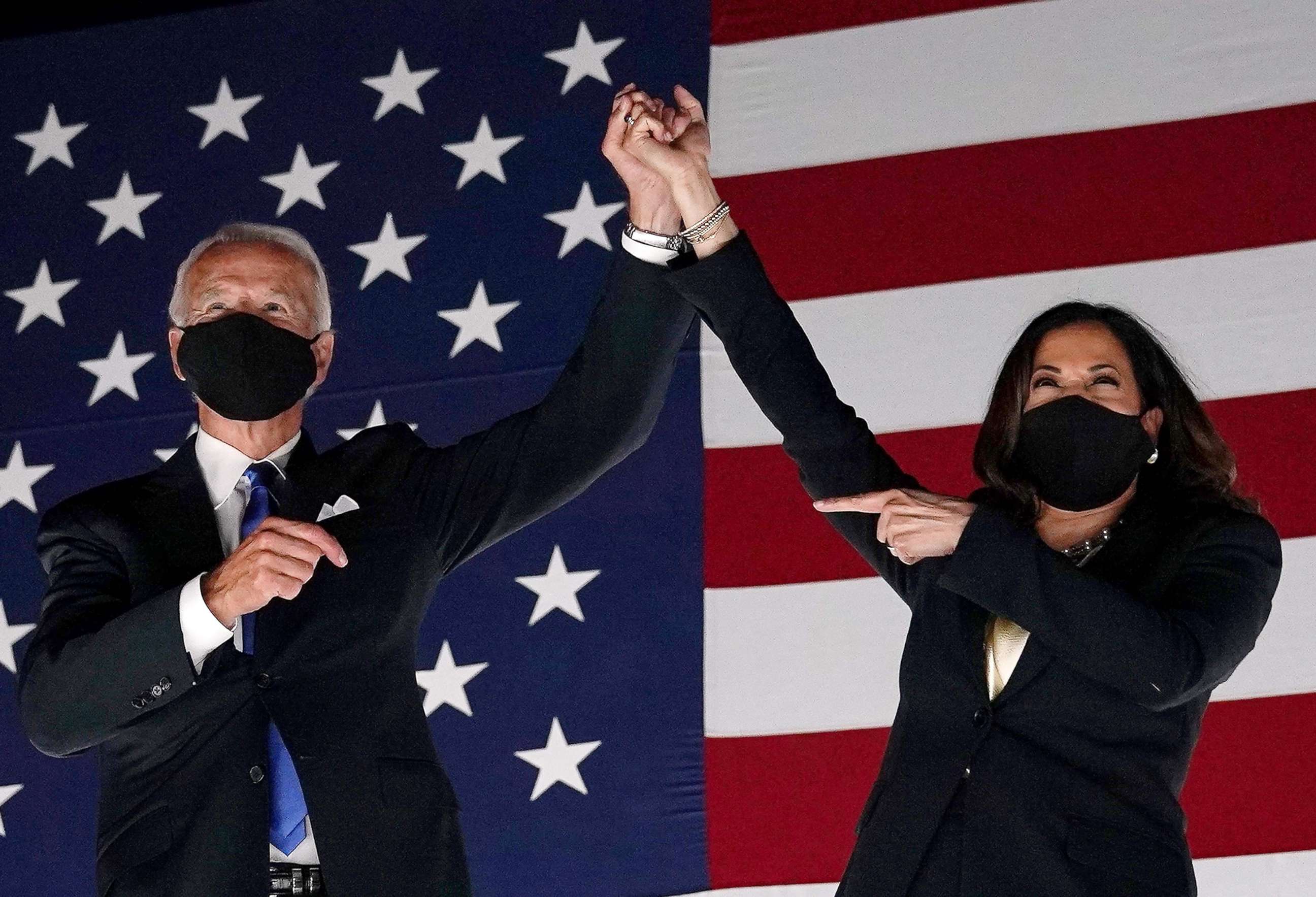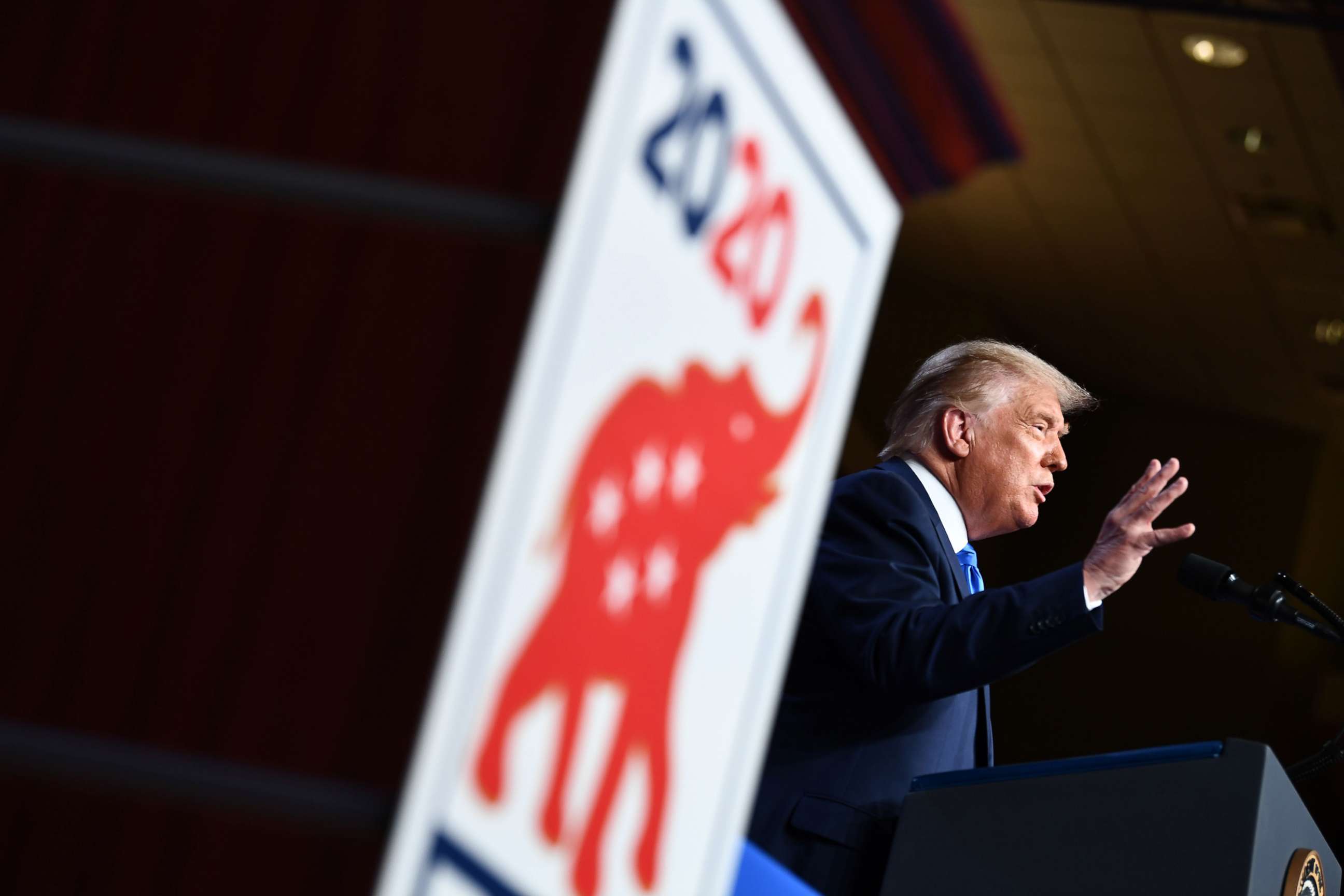Where do we stand now that the DNC is over and the RNC begins?: ANALYSIS
ABC News Chief Political Analyst Matthew Dowd assesses what's been learned.
What have we learned and where do we stand today, after the Democratic National Convention, on the day the Republican National Convention begins?
Joe Biden and the Democrats did what they had to do, delivering a smooth and positive rollout of vice presidential nominee Kamala Harris, and a convention that both testified to Biden’s character and humanity and lambasted President Donald Trump.
As I said prior to Democratic convention, their goal wasn’t really to boost Biden's poll margin over Trump since he already had a sizable lead and the country is so incredibly divided and polarized these days that large changes in margins are nearly impossible.
Their strategy was to solidify that lead and the positive perceptions of Biden. They accomplished both these tasks.
Today, Biden has, on average, a nine-point national lead, which in this divided country, is significant at the moment. Much of this lead is driven by the negative perceptions of the president, who has an approval rating of 41%, and it is important to keep in mind no president has won reelection with an approval rating under 48%.

Also, besides today's polarization, keep in mind no major party's presidential nominee, when examining a two-party vote, has gotten less than 41% of the vote since 1972, and the biggest winning margin since 1988 is 8.5%. So, a solid Biden average lead of nine points is on the far upper end of the scale of the probable in these divided times.
The first virtual convention turned out rather well, and from my vantage point was more compelling when you listened to the key speeches without applause lines written in and audience interruptions. Conventions really hadn’t changed much in the last 150 years, and maybe it was time to begin to update the model.
As we look forward to the GOP convention, let’s see if they can pull off the speeches in an equally compelling way without technical glitches and with limited audience reaction.
What is the strategic imperative for President Trump and the GOP' at their convention? I would suggest it is not in bashing Biden, but in building up Trump’s approval rating.
It is highly unlikely Trump can win a reelection race with his existing poor approval rating even if they are able to raise Biden’s unfavorable numbers. Reelection races are not the same as open presidential races, as happened in 2016. The reelection of an incumbent president is almost entirely a referendum on his leadership and how he or she might build on accomplishments with a vision for the next four years.

The GOP’s convention goal must primarily be about changing perceptions of Trump from negative to something more positive.
While difficult in a time of a pandemic and an economic crisis, it is likely their only path to victory. And the way to do this isn’t by having President Trump daily laud himself (as reports seem to indicate he wants to do each night), but having respected leaders testify to his leadership. When politicians praise themselves, voters have a strong tendency to discount most of what they say. President Trump would likely gain some level of popularity if he would talk and tweet much less over the next four nights and over the next two months prior to Election Day.
This won’t be easy for a variety of reasons: 1. Trump has demonstrated a reluctance to cede the stage to others. 2. There are a limited number of respected popular GOP leaders who are available to speak on President Trump’s behalf. 3. Perceptions of President Trump have solidified over the last four years in a negative way and changing them may be exceedingly difficult. But from my vantage point it is the only path available to raising his chances for reelection.
This convention is the last real chance for the president has under his control to change perceptions of himself prior to the debates in the fall. Paid advertising, campaign stops, and interviews will be shared with Joe Biden after the convention and so this is the final opportunity where the GOP has the stage to themselves.
Can they accomplish the strategy laid out above? We are about to find out.
Matthew Dowd is the chief political analyst for ABC News. Opinions expressed in this column do not necessarily reflect the views of ABC News.
ABC News Live will kick off primetime coverage each day at 7 p.m. ET on the network's streaming news channel, and primetime coverage will air from 10-11 p.m. ET each night of the convention on the ABC Television Network. Check back here for live updates starting at 7 p.m.




